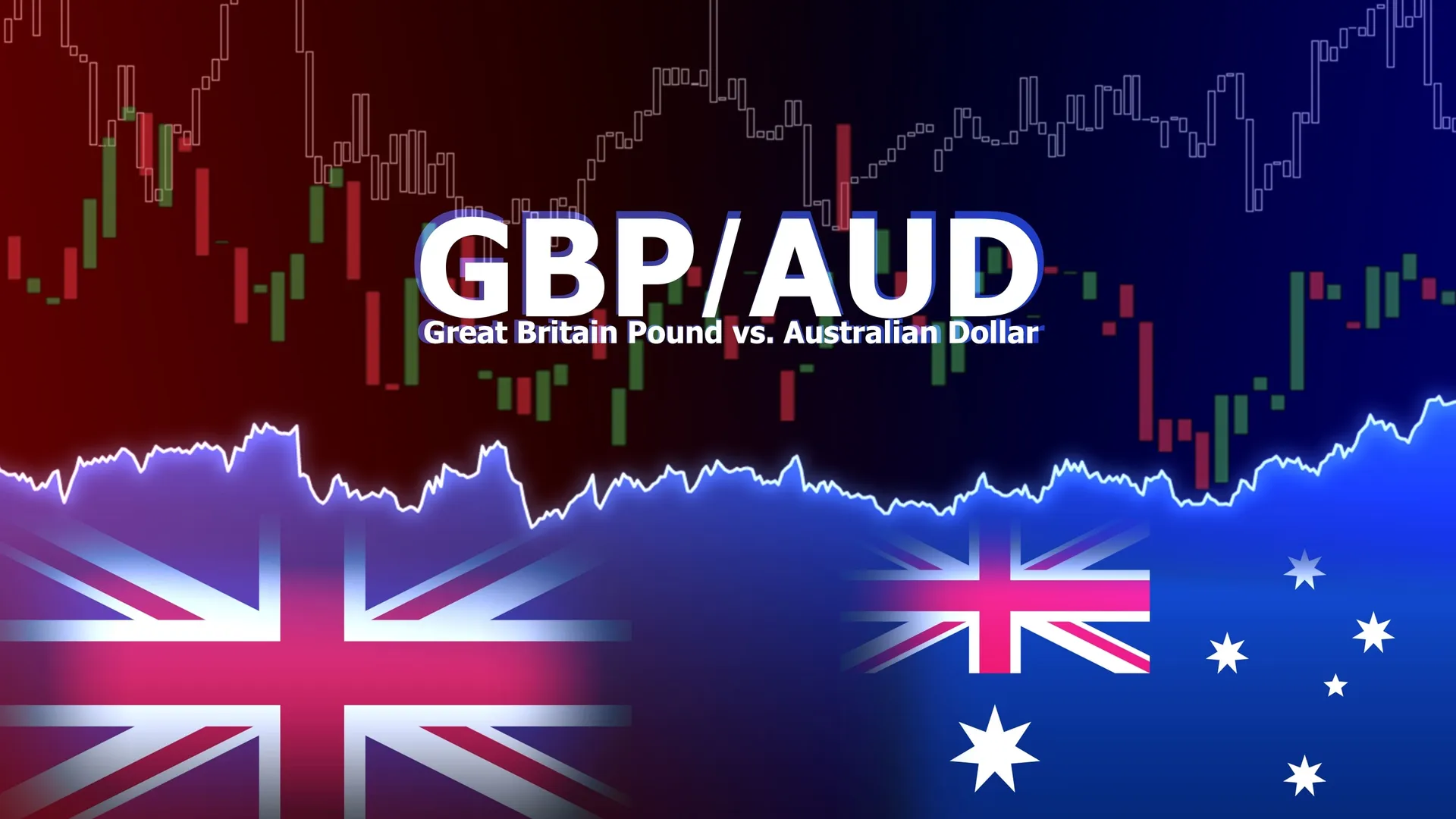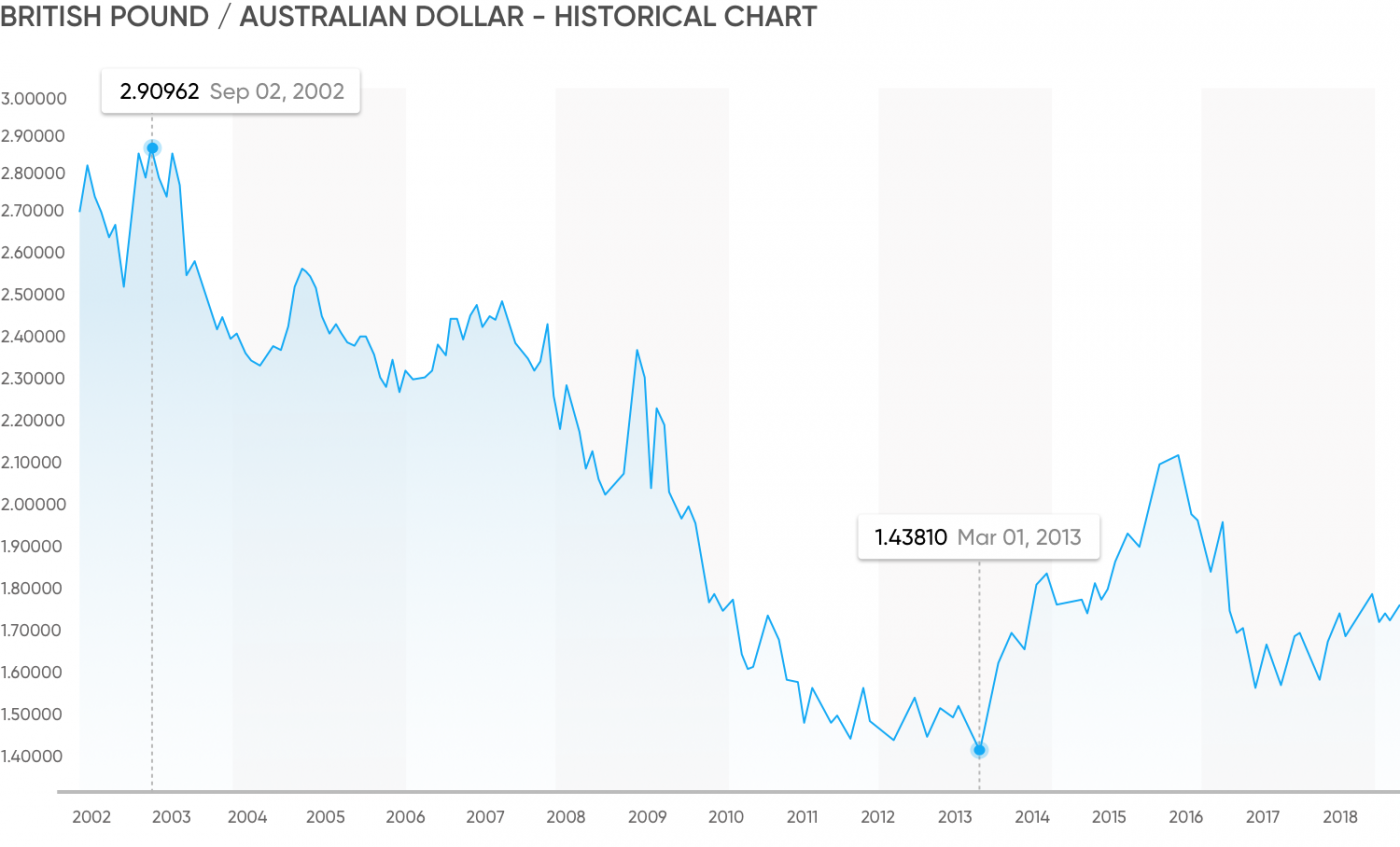Your guide to trading the GBP/AUD Forex pair

Why is the GBP/AUD an important market?
GBP/AUD is a commonly traded currency pair in the forex market – representing how many Australian dollars equal one pound. Learn why GBP/AUD matters to investors and CFD traders. Explore and trade [120]+ forex CFDs with us.
GBP/AUD trading hours
The forex market is open 24 hours a day, five days per week. Trading activity in GBP/AUD may be higher during the London session (8am-4pm UK time) and the Sydney session (7am to 4pm Sydney time).
This currency pair has historically experienced higher trading volumes around key economic releases from either the UK or Australia. However, past performance isn’t a reliable indicator of future results.
History of GBP/AUD
The pound sterling was introduced back in 775, when it was first used as a unit of account in Anglo-Saxon England. Today, GBP is the fourth most-traded currency across the foreign exchange market and represents a significant amount of daily trades all around the world.
The Australian dollar was preceded by the Australian pound. In 1966, Australia replaced the £sd (pounds, shillings and pence) system with a decimal currency, introducing the AUD. Due to its close proximity, Australia maintains strong relations with economies in Asia – which have historically influenced the AUD’s value.
Here’s the pound sterling to Australian dollar exchange rate history:

Past performance is not a reliable indicator of future results.
Factors influencing the GBP/AUD
Role of GBP
Factors influencing the GBP’s forex value include domestic economic performance. The UK’s Office for National Statistics (ONS) periodically releases three estimates of gross domestic product (GDP): the first estimate, the second estimate, and the final estimate. Such data releases may serve as important indicators for both investors and forex CFD traders.
The UK’s central bank, the Bank of England (BoE), is responsible for setting monetary policy and interest rates in the country – which can impact British pound forex pairs, such as GBP/AUD.
Role of AUD
Australia is a major commodities producing country, which means that import and export data serve as a key indicator for AUD demand. For decades, the price of the Australian dollar has been influenced by the export of materials such as coal, iron ore, and other commodities.
In Australia, decisions by the central bank, the Reserve Bank of Australia (RBA) – such as policy interest rate (cash rate) adjustments – can play a role in the value of the AUD.
How to trade GBP/AUD CFDs
You can trade GBP/AUD either through spot forex trading or by using a contract for difference (CFD) on the currency pair to speculate on price movements.
A CFD is a financial contract between a broker and a trader, where the parties agree to exchange the difference in value of an underlying asset between the opening and closing of the contract. This lets you speculate on price movements without ownership or physical delivery of the actual currency pair.
For instance, you could open a long position (buy) if you expect the price of GBP/AUD to rise, or a short position (sell) if you anticipate the pair will fall in value.
Past performance is not a reliable indicator of future results
|
CFDs are complex instruments and carry a high risk of losing money rapidly due to leverage. You should ensure you fully understand how CFDs work and carefully consider whether you can afford the risk of losing your money. |
Need more support? Try our step-by-step forex course to guide you through the basics to the advanced concepts.
Why trade GBP/AUD CFDs with Capital.com
Advanced technology – our news feed delivers curated content based on your interests; SmartFeed offers analysis and educational material to inform your decisions – recommending videos, articles, and news to help enhance your trading strategy.
Trade on margin – CFDs are traded on margin (with leverage of up to 20:1 for retail clients on non-major forex pairs such as GBP/AUD, in line with most major regulatory requirements. Actual leverage available will depend on your regulatory jurisdiction and client classification). Leverage beyond 1:1 magnifies both potential gains and potential losses.
Contracts for difference (CFDs) – by trading CFDs on GBP/AUD, you speculate on whether its price will rise or fall. You can go short or long, set stop-loss and take-profit orders to help manage risk, though execution at your set level is not always guaranteed, and apply trading scenarios that align with your objectives.*
Sharpen your analysis – stay informed about the latest moves with [100]+ technical indicators – including chart-drawing tools and more.
We prioritise your safety – Capital.com places strong emphasis on security. The platform operates entities authorised and regulated by the FCA, MENA, ASIC, SCB, and CySEC, and other relevant authorities. Please note that available features and protections may vary according to your regulatory jurisdiction.
Rapid withdrawals – withdrawal requests can be submitted 24/7, and are typically processed within one business day. Client funds are held in segregated accounts in accordance with local regulations.
*Stop-loss orders aren’t guaranteed. Guaranteed stop-loss orders (GSLOs) incur a fee once activated.
FAQ
How is Forex different to other markets?
Forex operates without a central exchange. Trading is decentralised and conducted over the counter, involving a wide range of participants worldwide. This structure tends to result in high trading volumes and can offer competitive bid-ask spreads, potentially lowering trading costs compared to some other markets.
I keep seeing the word 'pip,' what does that mean?
‘Pip’ stands for ‘percentage in point’. It represents the smallest standard unit of price movement in the forex market. For most major currency pairs, including GBP/AUD, a pip is typically equal to 0.0001.
Does Capital.com take commission from my Forex trades?
The simple answer is 'no' – at Capital.com, you do not pay a commission on forex CFD trades – you only pay the spread – which is the difference between the bid and ask prices – along with any applicable overnight funding charges. This differs from some brokers, who may charge a separate commission on each trade.